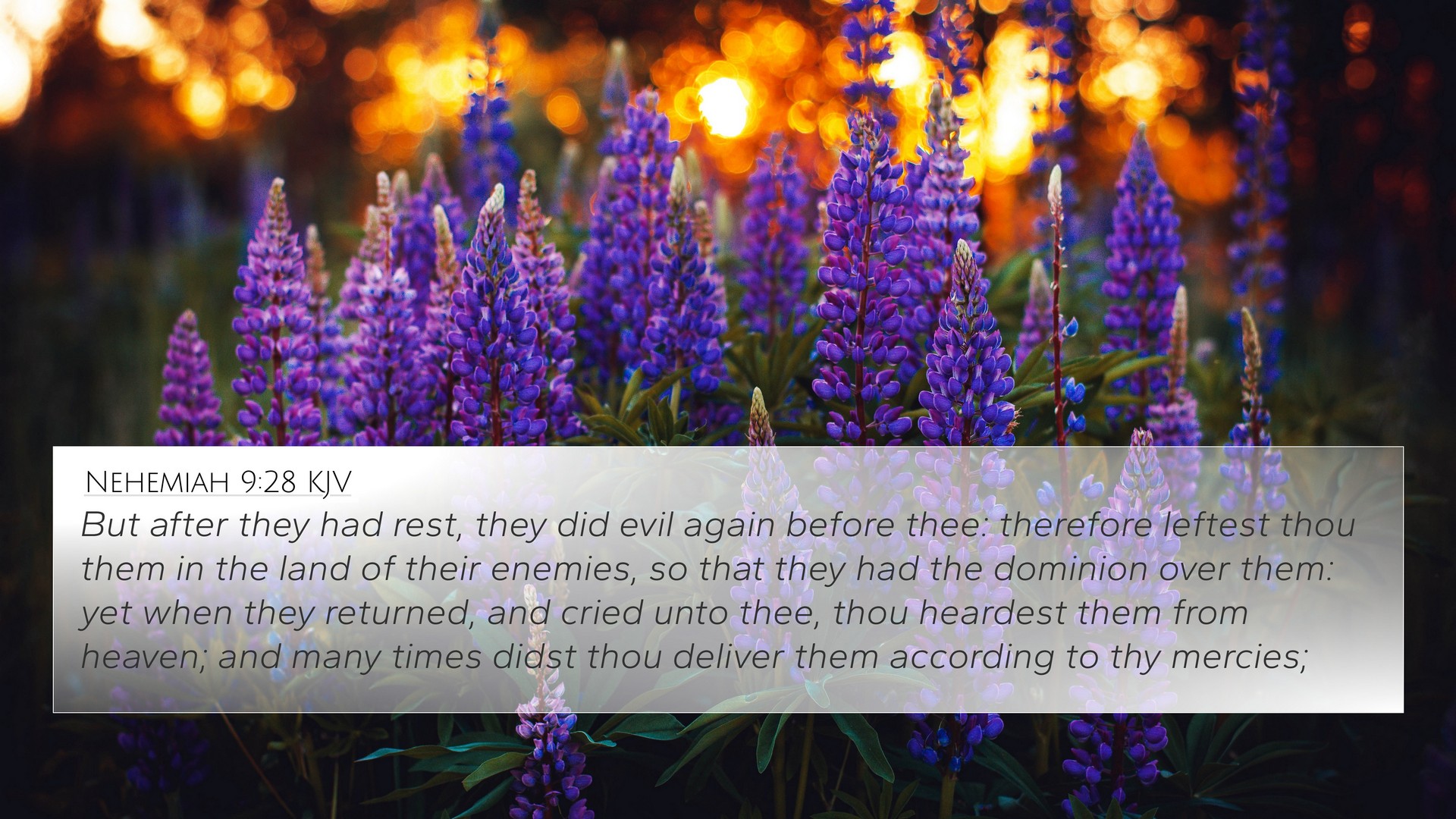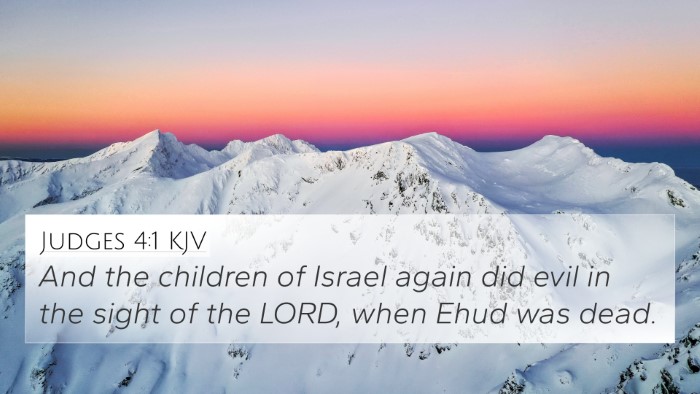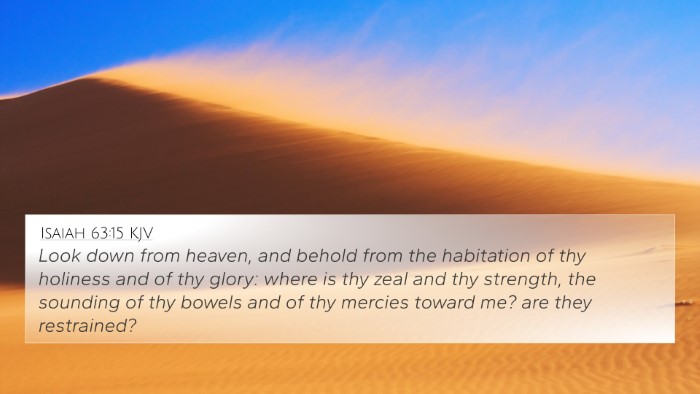Understanding Nehemiah 9:28
Nehemiah 9:28 states: "But after they had rest, they did evil again before thee: therefore leftest thou them in the hand of their enemies, so that they had the dominion over them: yet when they returned, and cried unto thee, thou heardest them from heaven; and many times didst thou deliver them according to thy mercies." This verse encapsulates a cycle of disobedience and divine mercy that is prevalent throughout the Scriptures.
Summary of the Verse
This verse highlights the pattern of Israel's rebellion against God following times of peace and rest. Despite their transgressions leading to oppression by their enemies, it emphasizes God's readiness to listen and deliver them when they repent. Such themes are intertwined with the broader narrative of the Israelite experience post-exile, linking back to God's faithfulness amidst human failure.
Commentary Insights
-
Matthew Henry: Henry notes that despite the Israelites experiencing God's rest, they repeatedly fell into sin. He underscores God's mercy, stating that His willingness to respond to their cries reflects His covenant faithfulness and unchanging love, even when they turned away.
-
Albert Barnes: Barnes emphasizes that the Israelites’ evil deeds are a reflection of human nature, suggesting that rest often leads to complacency. He points to their cry for help as a demonstration of how deeply ingrained their need for God's intervention is, drawing parallels with other Scriptural accounts where people face the consequences of their actions.
-
Adam Clarke: Clarke interprets this verse as a testament to God's patience. He observes that though punishment was a consequence of their sin, God's mercy was equally evident in His responses to their calls for help, highlighting a profound theological concept of repentance and restoration.
Thematic Connections
The themes addressed in Nehemiah 9:28 can be linked through various connections with other scripture passages. These connections emphasize the recurring nature of sin, repentance, and divine mercy throughout the Biblical narrative.
Bible Verse Cross-References
- Judges 2:16-19: Describes a similar cycle of Israel's rebellion and God's raising up of judges to deliver them.
- Psalms 106:43-46: Reflects on Israel's repeated failures and God's merciful deliverance in their time of need.
- 2 Chronicles 36:15-16: Highlights God's continually sending prophets to call them back, emphasizing His patience and mercy.
- Isaiah 30:15: Speaks about repentance leading to salvation, a theme echoed throughout Israel's history.
- Romans 10:13: Affirms that all who call upon the name of the Lord will be saved, mirroring the cries of the Israelites in Nehemiah.
- 1 John 1:9: Encourages believers that if they confess their sins, God is faithful to cleanse and forgive.
- Luke 15:20-24: The parable of the Prodigal Son illustrates the father's response to the son's return, paralleling God's response to Israel's repentance.
Scriptural Cross-Referencing
Engaging in cross-referencing these biblical texts allows for a more comprehensive understanding of the theological implications present in Nehemiah 9:28. By utilizing tools such as a bible concordance or a bible cross-reference guide, readers can explore deeper connections and uncover the layers of meaning throughout the Scriptures.
How to Use Bible Cross-References
To effectively utilize cross-references while studying this verse and its connections, consider the following methods:
- Identify themes: Look for themes of deliverance, sin, and repentance in related verses.
- Mapping connections: Create a visual map of verses that relate to Nehemiah 9:28 to better visualize the inter-Biblical dialogue.
- Comparative analysis: Compare the responses of God to His people throughout different books of the Bible to see consistency in His character.
The Importance of Understanding Biblical Context
Understanding Nehemiah 9:28 requires an appreciation for the historical and theological context of the Israelites' journey. Their history of rebellion and God's merciful responses is a poignant reminder of the themes of grace and redemption prevalent in both the Old and New Testaments.
Researching Themes Through Cross-References
Themes in Nehemiah 9:28 can lead to fruitful studies about repentance and divine mercy, as well as Israel's covenantal relationship with God. Through cross-referencing, one can explore:
- How repentance brings restoration: Study the links between Nehemiah and the teachings of the New Testament.
- Comparative study of Pauline epistles: Analyze how Paul's teachings reflect the principles illustrated in Nehemiah.
- Connections to the Prophets: Explore how prophetic messages aligned with the themes of Nehemiah's time.
Conclusion
Nehemiah 9:28 serves as a powerful reminder of the continuous cycle of sin and redemption that defines the Biblical narrative. By utilizing cross-references and exploring the connections between Scripture, one can gain deeper insights into the nature of God’s mercy and the human condition. This verse encourages believers to understand their own lives in light of the greater story of God’s faithfulness.










